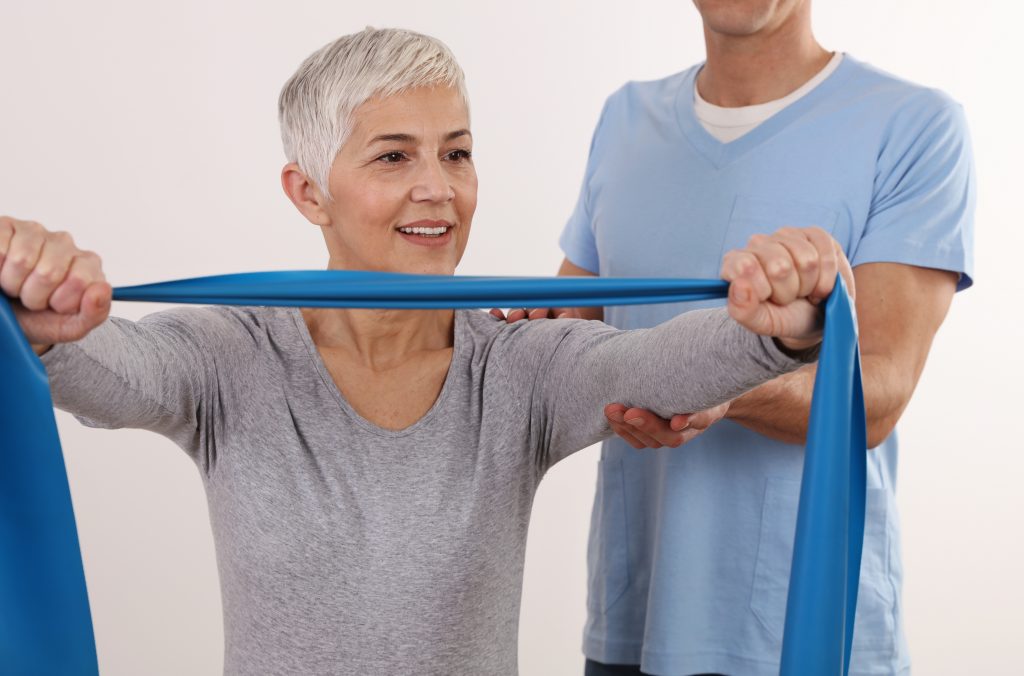Adhesive capsulitis, another name for frozen shoulder, is a disorder that makes the shoulder joint painful and rigid. This condition occurs when the capsule surrounding the shoulder joint thickens and tightens, making it difficult for the joint to move properly. Frozen shoulder usually develops gradually, and its onset can be caused by a variety of factors. We’ll talk about a frozen shoulder’s causes, signs, and possible treatments in this post.

CAUSES OF FROZEN SHOULDER
The exact cause of a frozen shoulder is not fully understood, but it can develop after a shoulder injury or surgery, prolonged immobility of the shoulder joint, or a medical condition such as diabetes or thyroid disease. Other factors that can increase the risk of developing a frozen shoulder include age, sex (women are more likely to develop it than men), and certain shoulder conditions such as rotator cuff injuries.
SYMPTOMS OF FROZEN SHOULDER
The symptoms of a frozen shoulder can vary from person to person, but they typically include pain and stiffness in the shoulder joint. The pain is often described as a dull ache that worsens at night or when the shoulder is moved. The stiffness can make it difficult to perform daily activities such as reaching for objects, dressing, or combing hair. In severe cases, the shoulder joint may become so stiff that it cannot be moved at all.
TREATMENT OPTIONS FOR FROZEN SHOULDER
There is no single treatment that works for everyone with a frozen shoulder, and the condition can take several months to resolve. However, there are several treatment options that can help alleviate the symptoms and improve the range of motion in the shoulder joint.
- Physical Therapy
Physical therapy is often the first-line treatment for a frozen shoulder. A physical therapist can design a customized exercise program that targets the shoulder joint and helps improve its range of motion. The exercises may include stretches, range-of-motion exercises, and strengthening exercises. Physical therapy can help reduce pain and stiffness in the shoulder joint and improve overall function. - Medications
Over-the-counter pain relievers such as ibuprofen or aspirin can help reduce pain and inflammation in the shoulder joint. In some cases, a doctor may prescribe stronger pain medication or a steroid injection to help alleviate symptoms. - Joint Distension
Joint distension involves injecting sterile water into the shoulder joint to help stretch and loosen the capsule surrounding the joint. This procedure is typically done under local anesthesia and can help improve the range of motion and reduce pain. - Surgery
In rare cases, surgery may be necessary to treat a frozen shoulder. Surgery is usually only recommended when other treatments have failed, and the shoulder joint is severely restricted. The surgery may involve manipulating the shoulder joint under anesthesia or removing scar tissue from the joint. - Home Care
There are several things that individuals with frozen shoulders can do at home to help alleviate symptoms and improve the range of motion in the shoulder joint. Applying a cold pack to the shoulder for 15-20 minutes at a time several times a day can help reduce pain and inflammation. Heat therapy, such as a warm shower or heating pad, can help improve flexibility and reduce stiffness. It is also important to continue to move the shoulder joint as much as possible, even if it is painful. Gentle stretches and exercises can help prevent the joint from becoming too stiff.
 A frozen shoulder can be a painful and frustrating condition, but there are several treatment options available to help alleviate symptoms and improve the range of motion in the shoulder joint.
A frozen shoulder can be a painful and frustrating condition, but there are several treatment options available to help alleviate symptoms and improve the range of motion in the shoulder joint.
If you are experiencing symptoms of a frozen shoulder, it is important to speak with your healthcare provider to determine the best course of treatment for your individual needs. To make an appointment with Specialty Care Clinics call 469-545-9983.
